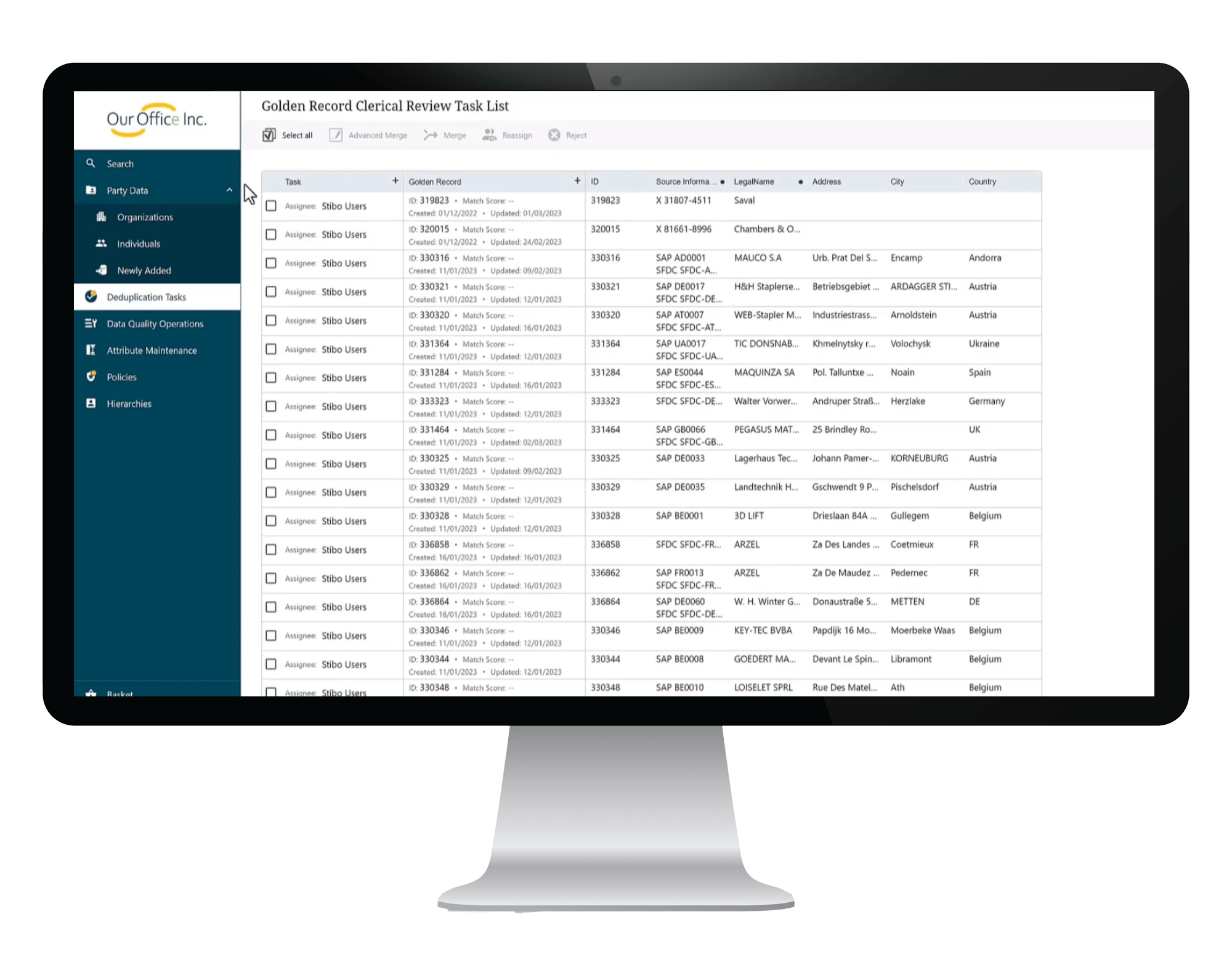Merchandise returns, unsubscribes and more: Signs you have a data quality problem
The root cause of bad customer experience often poor data quality and 95% of organizations are impacted by it.
Get the infographic
Data quality
Take your data quality management to the next level by leveraging automated and standardized quality assurance processes that manage data consistency, accuracy, uniqueness and completeness.

Data quality management (DQM) is a critical capability in master data management that ensures data accuracy, reliability, completeness and consistency across an organization. It involves processes for identifying, understanding and correcting data quality issues to support effective decision-making and operational efficiency.
The data profiling functionality automatically analyzes data for patterns and anomalies, pinpointing quality problems and providing insights on data structure, content and relationships through data quality metrics.
Each data profile contains detailed information that makes it easy to correct low-quality data entry or incomplete data issues that hinder your data’s intended purpose. For example, data stewards can see:

Complete, accurate, clean data across enterprises is crucial to optimizing workflows and helping business processes run smoothly for all stakeholders. Good data quality standards also make sure that an organization’s data maintains regulatory compliance.
Our data cleansing and enrichment automations can be used in bulk or at the time of onboarding. Preset business rules and tables standardize, correct and enhance data by removing duplicate records, verifying addresses and more.
Built-in capabilities such as AI-powered matching and merging ensure that data quality checks and improvements are applied consistently across all master data management domains. External data sources like Loqate or Dun & Bradstreet can provide additional information for data validation and enrichment, improving overall quality and completeness of data.

Stibo Systems’ data validation capability will not only continuously check data against defined data quality rules but also alert users in real-time to any violations, enabling continuous improvement.
Reported statistics like the Completeness Score define attribute and reference weights and present you with a tangible data point for each object. Data quality metrics evaluate data and return an integer between 1 and 100, and that number is subsequently used to profile objects and generate governance data policies.
Sufficiency allows rules and conditions to be custom-set for how the system should evaluate the dimensions of data quality and the completeness of an organization’s data. All this data quality monitoring can be visualized through the completeness meter and sufficiency panel dashboards, allowing for straightforward analysis, timeliness and tracking of data quality initiatives that meet your business goals.

Expose and extract data from Stibo Systems Platform to streamline the auditing of workflows and other critical data to determine where objects in a workflow are spending most of their time and why conditions fail for objects in a workflow, supporting root cause analysis.
From there, data can be analyzed and blended with third-party system information via business intelligence tools and dashboards. These valuable insights can help identify and enhance business processes, as well as improve legal and regulatory compliance.

The embedded analytics platform, powered by Sisense, provides users with a one-stop analytics solution that eliminates data silos. It captures, analyzes and visualizes data assets pulled from Stibo Systems Platform and other external systems like ERP, CRM and sales forecasting systems, streamlining multiple data sources into one ecosystem.
From there, it blends related data and applies the necessary ETL transformations in preparation for analysis and visualization. Sisense dashboards can be implemented as widgets to allow data observability and visual insight without switching interfaces, supporting data-driven decision-making.
The root cause of bad customer experience often poor data quality and 95% of organizations are impacted by it.
Get the infographic
The British international multichannel retailer automated data entry and reduced errors, and can now manage detailed content for multiple websites.
Get the success story
Discover the value of master data management to deliver better business outcomes.
Get the white paper
Let's talk about how master data management and effective data quality management can work together to drive growth, efficiency and transformation in your business.